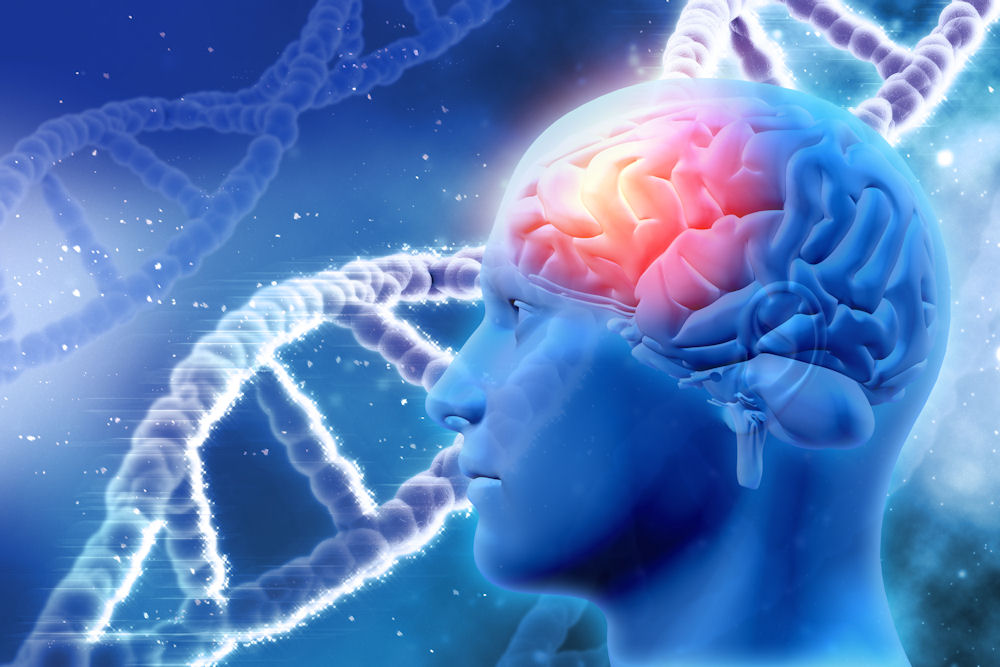
The way a treatment provider responds to cultural differences can significantly influence a person’s recovery experience. Cultural humility and cultural competence represent two distinct philosophies that guide how addiction treatment centers serve individuals from diverse backgrounds. While both aim to improve the quality of care, they differ in approach and long-term impact.
Cultural competence emphasizes learning about specific cultures, often treating cultural understanding as a skill set that can be achieved or mastered. Cultural humility, by contrast, centers on ongoing self-reflection, awareness of power dynamics, and a commitment to valuing each client’s lived experience over generalized cultural assumptions.
Research from the Substance Abuse and Mental Health Services Administration (SAMHSA) underscores the importance of this shift in perspective, showing that racial and ethnic minorities remain approximately 30% less likely to receive addiction treatment than white Americans. These disparities point to the need for more responsive, person-centered approaches that reduce barriers to care and foster trust. Within addiction treatment settings, cultural humility has been shown to support stronger engagement and help address longstanding inequities in access and outcomes.
Cultural humility, first described by Melanie Tervalon and Jann Murray-García in 1998, is a lifelong practice of self-reflection and self-critique. Unlike approaches that treat cultural understanding as a fixed goal, cultural humility emphasizes ongoing learning and encourages providers to remain open, curious, and receptive to the insights of the individuals and communities they serve.
At its core, cultural humility seeks to address power imbalances by promoting shared decision-making and valuing clients’ lived experiences. Providers practicing this approach defer to clients’ perspectives on which treatment methods align with their values and beliefs.
This philosophy prioritizes understanding each client as a whole person rather than relying on assumptions or generalized cultural knowledge. In addiction treatment, cultural humility is especially critical, as recovery is highly personal and shaped by social, familial, historical, and cultural factors.
Research across medical and mental health settings consistently demonstrates that when providers practice cultural humility, clients report higher levels of trust, remain in treatment longer, and achieve better outcomes. This is especially critical for historically marginalized populations who have often experienced discrimination or exclusion from healthcare systems.

Cultural competence is the ability to understand, communicate with, and effectively interact with people across different cultural contexts. Traditionally, it is framed as a set of knowledge, skills, and attitudes that can be taught and measured. In healthcare, cultural competence involves learning about the beliefs, values, and practices of diverse populations to provide more appropriate and effective care.
Implementation of cultural competence often includes structured training, checklists, and standardized protocols. In addiction treatment, this may involve educating providers about cultural norms, health disparities, and potential barriers specific to minority groups. Examples include offering gender-affirming services for LGBTQ+ clients, providing multilingual materials, or accommodating specific cultural or spiritual practices.
While cultural competence provides a necessary foundation for inclusive care, it has limitations. If applied in isolation, it may fail to address deeper issues of systemic power, implicit bias, and the ongoing need for individualized understanding. For instance, knowing general cultural practices does not replace the need to listen carefully to a client’s personal experiences and recovery goals.
Cultural competence and cultural humility training are complementary approaches in addiction treatment. Cultural competence provides foundational knowledge about diverse populations, health disparities, and evidence-based practices, often delivered through lectures, workshops, or manuals. Cultural humility focuses on self-reflection, addressing biases, and adapting care to each client’s lived experience, emphasizing experiential learning and awareness of privilege and power dynamics.
Relying solely on cultural competence can create risks. Providers may unintentionally stereotype clients or assume that individuals within a cultural group share the same beliefs or values, undermining trust and engagement. Key differences between the two are as follows:
Research supports this integrated approach, proving that the most effective programs integrate both approaches. A 2024 study found that programs combining cultural competence and cultural humility reported 32% higher client satisfaction and 28% higher treatment retention among diverse populations.
Cultural humility positively impacts addiction recovery by strengthening relationships between clients and providers. Programs that emphasize cultural humility report significantly lower dropout rates, up to 25% lower compared to those relying solely on cultural competence.
When providers engage in ongoing self-reflection and address power imbalances, men in recovery feel more respected and understood. This sense of respect translates into deeper engagement and improved outcomes. Key benefits of cultural humility include:
Our peer-led community model supports these outcomes by creating inclusive environments for men from diverse backgrounds. Individual therapy and group therapy sessions incorporate cultural humility principles, allowing clients to guide conversations about their experiences.

Golden Gate Recovery practices cultural humility in every aspect of care. The approaches go beyond cultural competence by prioritizing ongoing learning, power-sharing, and community engagement. Cultural humility recognizes that each person is the expert on their own experience.
Golden Gate’s Indigenous Healing and Wellness Track exemplifies cultural humility through the integration of traditional healing practices. We collaborate with Indigenous leaders rather than positioning staff as cultural experts. Native-led groups incorporate medicine wheel teachings and traditional ceremonies while connecting clients to local Indigenous community events. Partnering with Rooted & Restored Collaborative, the program addresses historical trauma and structural inequities, demonstrating power-sharing and community-driven care in action.
Safe, welcoming spaces for the LGBTQ+ community start with intentional language practices. Staff members respect chosen names and pronouns while allowing clients to lead conversations about their needs. This approach moves beyond competence to true humility by recognizing each person as the expert on their own experience.
Cultural humility in LGBTQ+ care means ongoing self-reflection about biases and assumptions. Providers listen curiously and defer to clients' insights rather than relying on generalized knowledge about minority communities.
Providing services in multiple languages reduces power imbalances and allows clients to communicate comfortably, honoring their expertise and supporting better treatment outcomes. Cultural humility recognizes that effective communication goes beyond translation, with providers addressing how language barriers can reinforce power dynamics.
Local context and historical factors shape addiction recovery experiences. The team works closely with community organizations to tailor services for relevance and respect. This collaboration reflects cultural humility's emphasis on community engagement and advocacy for individual perspectives. Community-specific approaches avoid assumptions about what any group needs. Instead, providers engage in ongoing learning from community members themselves.
Cultural humility develops through ongoing self-reflection and a willingness to learn from others. Providers examine their own biases, privilege, and assumptions, recognizing the limits of their knowledge and committing to lifelong learning rather than claiming expertise. Organizations can foster cultural humility by offering training that emphasizes self-awareness and power dynamics, focusing on process rather than content. Key strategies include:
Cultural humility isn’t something you achieve; it’s something you practice every day. Effective providers continually examine their biases and adjust their approach throughout their careers.

Golden Gate Recovery in Marin County, CA, integrates cultural humility in its addiction treatment programs for adult men with co-occurring mental health conditions. The clinical team receives ongoing training in evidence-based practices while emphasizing self-reflection, collaboration, and client-centered care.
This approach is reflected in the Indigenous Healing and Wellness Track, where Native-led groups combine medicine wheel teachings and traditional practices with evidence-based therapies. Clinicians adapt treatments to honor each client’s cultural identity while supporting sustainable recovery.
Cultural humility shapes every aspect of treatment planning, transforming it into a collaborative process. Patient-centered assessments invite clients to share their personal histories, cultural backgrounds, and recovery goals, recognizing them as experts on their own experience.
Treatment plans remain flexible, evolving with client feedback. Providers revisit goals regularly and adjust interventions to align with each person’s values, cultural context, and stage of recovery. This includes:
Golden Gate Recovery’s patient-centered, holistic approach honors each man’s beliefs and cultural identity, addressing power imbalances and barriers that can hinder access to effective and equitable addiction treatment.
Understanding cultural humility is essential for effective addiction treatment, and these frequently asked questions provide practical insights into how it shapes care, supports clients, and guides providers.
Cultural humility in addiction recovery emphasizes self-reflection, addressing power imbalances, and building community partnerships to create more effective and respectful treatment. Providers practicing cultural humility recognize their own biases and privilege while remaining open to learning from each person's lived experience.
Developing cultural humility is a lifelong, ongoing process that requires continuous self-reflection and learning rather than a fixed timeline. Treatment professionals engage in regular self-examination of their biases, privilege, and knowledge limits while remaining open to feedback from clients and communities.
Yes, cultural humility helps reduce stigma by fostering respect, openness, and understanding, which improves access to care for marginalized groups. Providers practicing cultural humility create safer spaces where men struggling with addiction feel heard and respected rather than judged.
Cultural humility is an ongoing process of self-reflection and learning, while cultural sensitivity refers to being aware of and respectful toward cultural differences. Cultural humility builds on this awareness by requiring providers to examine their own biases and power dynamics in treatment relationships.
Cultural humility reduces power imbalances in addiction treatment by fostering a collaborative, respectful partnership where providers reflect on biases, learn from patients’ cultural experiences, and honor them as experts in their own lives.

Cultural humility is the foundation of care at Golden Gate Recovery, guiding a commitment to lifelong learning, self-reflection, and true partnership with clients from diverse backgrounds. Research shows that cultural humility strengthens person-centered care by reducing bias and stereotyping that contribute to treatment disparities.
Programs are designed to honor cultural respect and individual needs, including LGBTQ+ affirming care, multilingual support, and community-specific services. The Indigenous Healing and Wellness Track, developed in partnership with Rooted & Restored Collaborative, integrates medicine wheel teachings and traditional practices alongside evidence-based therapies.
Cultural humility is reflected in the peer-led community model and individualized treatment planning. Staff listen openly, value client insight, and adapt care to each person’s cultural background and lived experience. Individual therapy, group therapy, and dual diagnosis treatment address the whole person rather than assumptions about identity.
Contact Golden Gate Recovery today to learn more about available programs and verify insurance coverage. Healing is most effective when treatment honors each person’s story, identity, and path forward.
Get confidential help! Call Us Now for:

At Golden Gate Recovery in Novato, California, located in Marin County, we specialize in helping men overcome addiction through evidence-based treatment programs that address both biological and social factors. We’ve seen firsthand how men experience addiction differently from women, and understanding these differences is crucial for effective recovery.
The biology of addiction in men involves unique brain chemistry, hormonal influences, and physical responses that shape how substances affect the male body. These biological factors combine with social pressures and expectations to create distinct patterns in how men develop, experience, and recover from addiction.
The brain’s reward system is a network of brain regions that motivates us to repeat behaviors that help us survive and thrive. When we do something beneficial, like eating when hungry or connecting with others, our brain releases chemicals that make us feel good, encouraging us to repeat these actions.
Drugs and alcohol hijack this natural system. When someone uses substances, their brain releases much more dopamine (the main “feel-good” chemical) than natural activities would. This flood of dopamine creates intense pleasure that the brain remembers and wants to experience again.
Three key brain areas play important roles in addiction:
Over time, repeated substance use changes how these brain regions function. The brain adapts by becoming less sensitive to dopamine, making it harder to feel pleasure from everyday activities. This leads to needing more of the substance to feel good and experiencing strong cravings when not using.
According to the National Institute on Drug Abuse (NIDA), these brain changes can persist long after someone stops using substances, explaining why addiction is considered a chronic brain disease rather than simply a lack of willpower.

When men use substances regularly, their bodies develop tolerance—meaning they need more of the substance to get the same effect. This happens because the body adapts to the presence of the drug. Men often develop tolerance faster than women due to several biological differences:
When men stop using substances after developing dependence, they experience withdrawal, the body’s reaction to the sudden absence of a substance it has adapted. Male withdrawal often features more intense physical symptoms like sweating, shaking, and headaches compared to female withdrawal patterns.
Traditional male socialization often emphasizes being strong, self-reliant, and emotionally controlled. These expectations can make it difficult for men to acknowledge personal struggles or ask for help, behaviors that are crucial for addressing addiction early.
Instead of seeking support, men might use substances to:
The male stress response system interacts with these social pressures in important ways. When men experience stress but don’t have healthy outlets for expressing it, their bodies may produce higher levels of stress hormones for longer periods. This biological response can increase vulnerability to substances that temporarily relieve stress.
Many industries with predominantly male workforces involve high stress, physical demands, and exposure to trauma or danger. Construction, military service, law enforcement, and firefighting are examples of occupations with elevated rates of substance use disorders. These work environments create multiple risk factors:
According to the Centers for Disease Control and Prevention (CDC), men in construction had the highest rates of substance use among all industries in 2021, with nearly 15% reporting illicit drug use in the previous month.
The combination of physically demanding work, injury risk, and workplace culture creates a perfect storm of biological vulnerability and social permission for substance use that can easily develop into addiction.

Testosterone, the primary male sex hormone, significantly influences how men respond to substances. This hormone affects brain development and function in ways that can increase addiction vulnerability:
These hormone-substance interactions help explain why men often report more intense initial experiences with drugs and alcohol, potentially accelerating the path to addiction.
Dopamine is the primary chemical messenger of the brain’s reward system. Research shows that men’s brains often release more dopamine in response to substances compared to natural rewards like food or social connection. This difference in dopamine signaling creates several effects:
As addiction progresses, the brain’s dopamine system becomes increasingly dysregulated. Natural rewards no longer produce sufficient dopamine to feel satisfying, while substance use continues to activate the reward pathway despite causing harm. This explains why people with addiction often continue using substances even when they want to stop.
Recovery involves gradually restoring the brain’s normal dopamine function—a process that takes time and often requires both medical and psychological support.

Men are often socialized to suppress emotions rather than express them openly. This emotional containment isn't just a psychological issue; it creates biological effects that increase addiction vulnerability.
When emotions are chronically suppressed, the body produces more stress hormones like cortisol. Elevated cortisol levels can:
Research from the National Institute on Drug Abuse (NIDA) indicates that men who report feeling socially isolated are twice as likely to develop substance use disorders compared to those with strong social connections. This finding highlights how social factors directly influence biological vulnerability.
Male social groups can significantly impact substance use through both direct and indirect influences. When peers use substances, they create both social pressure and environmental cues that affect brain chemistry. Being around others who are using substances can:
These biological responses to social situations help explain why recovery environments matter so much. Continuing to spend time with people who use substances makes the brain more vulnerable to relapse, while supportive, substance-free relationships can strengthen recovery.
Men often face specific relapse triggers that interact with their brain chemistry in predictable ways. Understanding these patterns can help in developing effective prevention strategies. Common relapse triggers for men include:
These triggers produce neurological responses that can make resisting substances extremely difficult without proper support and coping strategies. Warning signs that the brain may be becoming more vulnerable to relapse include:
Research increasingly shows that men benefit from treatment approaches that address their specific biological and social experiences with addiction. According to studies published in the Journal of Addiction Medicine, treatment programs that incorporate male-specific components show significantly better outcomes. Effective elements of male-focused treatment include:
SAMHSA reports that gender-specific programs have up to 25% higher success rates for men compared to mixed-gender programs that don’t address these unique factors.
At Golden Gate Recovery, we incorporate these evidence-based approaches into individualized treatment plans that address both the biological and social dimensions of addiction in men.

Understanding the biology of addiction in men provides valuable insights for both prevention and treatment. The unique ways that male brains and bodies respond to substances, influenced by hormones, brain chemistry, metabolism, and social factors, create specific patterns that require targeted approaches.
When men understand how their biology influences their experience with substances, they can:
This knowledge also helps families and loved ones understand that addiction isn’t simply a choice or moral failing but a complex brain disorder with biological roots that respond to proper treatment.
At Golden Gate Recovery in Marin County, CA, we use this biological understanding to create comprehensive treatment plans that address the whole person. Our programs combine medical care, psychological support, and social connection to help men recover from addiction and build healthier lives.
Male hormones, particularly testosterone, increase reward sensitivity and risk-taking behavior, creating a biological predisposition to substance experimentation and potentially more intense initial responses to drugs and alcohol.
Men's different body composition, metabolism rates, and hormone profiles create distinct withdrawal experiences, often characterized by more severe physical symptoms but potentially fewer mood disturbances than women experience.
The male stress response system interacts uniquely with reward pathways, creating distinct vulnerability patterns where stress relief becomes strongly associated with substance use, reinforcing addiction cycles.
Men's brains typically show less activity in areas associated with self-reflection and emotional processing, combined with stronger activity in problem-solving regions, creating biological barriers to recognizing addiction as a health condition requiring help.
Knowledge of male-specific neurobiological patterns allows for targeted interventions that address the unique ways men's brains form and maintain addictive patterns, significantly improving treatment effectiveness and reducing relapse rates.

At Golden Gate Recovery, we understand the unique biological and social factors that shape men’s experiences with addiction. Our evidence-based treatment programs are specifically designed to address these male-specific challenges, providing comprehensive support that works with your biology, not against it.
Our team combines medical expertise, psychological support, and peer connection to help men overcome addiction and build healthier lives. Contact us today to learn more about our specialized programs or to verify your insurance coverage for treatment.
Get confidential help! Call Us Now for:
Relapse is a common occurrence for individuals who are in recovery from addiction. It acts as a return to substance abuse or harmful behaviors after a period of abstinence. Various factors trigger relapse, such as emotional turmoil, stress, and unresolved trauma.
Recognizing the warning signs is crucial for individuals in recovery, as it can help prevent a full-blown relapse and allow them to seek support before it’s too late. We will discuss common relapse warning signs and how to recognize them. Golden Gate Recovery offers a relapse prevention plan in Marin County, California for men struggling with substance abuse.

Relapse is not sudden but a gradual process. Recognize the warning signs to avoid relapse. Relapse does not happen overnight and can appear by the following signs:
Individuals might start to isolate themselves from friends, family, and support groups. They may also withdraw from activities they used to enjoy.
A sign of relapse can be sudden changes in mood or behavior. Changes in mood and behavior can include irritability, anger, depression, or increased anxiety.
Returning to old friends or environments that were part of the individual's substance abuse can be a red flag that they are heading to relapse.
During recovery, individuals often learn the importance of self-care. Relapse warning signs may include neglecting personal hygiene, skipping meals, and not getting enough rest.
Individuals in recovery may start justifying and rationalizing their thoughts and behaviors, making excuses for potential relapse triggers.
It is normal to relapse. Relapse is an expected part of the recovery process. Many individuals will experience setbacks, and it's essential not to view setbacks as failures but rather as growth opportunities. Recovery is a lifelong journey and does not mean starting over from square one.
Recognizing the warning signs can help individuals take proactive steps to prevent a full-blown relapse. It’s crucial to seek support from loved ones, therapists, or support groups during this time. Here at Golden Gate Recovery in Marin County, California, we can men overcome addiction and mental health concerns.
Relapse triggers can vary from person to person, but some common triggers include:
Significant life changes, such as a loss of job or relationship problems, can be overwhelming and increase the risk of relapsing.
Experiencing negative emotions like anger, sadness, or boredom can lead to cravings and thoughts of using substances.
Peer pressure to use substances or engage in social activities where drugs or alcohol are present can be triggering for individuals in recovery.
Feeling overly confident in one's ability to stay sober may lead to complacency and not taking proper precautions.
Relapse comes in three stages: emotional, mental, and physical.
During the first stage, individuals may not have thoughts or cravings to use substances, but their behavior and emotions may be similar to when they were in active addiction. They may start isolating themselves, neglecting self-care, and experiencing mood swings.
Individuals may start having thoughts of using substances again during the second stage. They may also begin romanticizing past substance use or glamorizing it. This stage is critical as recognizing these thoughts and behaviors early on can prevent a full-blown relapse.
The final stage involves returning to substance abuse or engaging in harmful behaviors. Before reaching this stage, seeking support and staging an intervention is crucial. It can be challenging to stop once started.

If you or a loved one is showing relapse warning signs, reaching out to a therapist, attending group meetings, and talking to trusted friends and family can support you during this time. It’s important not to feel ashamed or guilty about experiencing relapse warning signs.
Recovery is a journey with its ups and downs, and seeking help during challenging times can make all the difference in preventing a full-blown relapse. Remember, recognizing the warning signs is a sign of strength, and there is always hope for recovery. So don’t hesitate to reach out for help when needed!
It can be challenging to recognize signs in someone else but here are some red flags to look out for:
If you notice a loved one suddenly isolating themselves or acting differently, it could be a sign.
If you notice a loved one may start hiding their activities and avoiding talking about their recovery, it could be a sign
Neglecting personal hygiene or sudden weight changes can be signs of substance abuse or mental health struggles.
Relapse isn’t failure but rather an opportunity for growth and learning. Recovery is a journey, and setbacks are normal. By recognizing relapse warning signs and seeking support, individuals can navigate challenging times and continue on their path toward recovery.
Recovery involves more than just abstaining from substance use. It also includes addressing underlying issues, building healthy coping mechanisms, and maintaining a support system. Relapse may be a temporary setback, but by staying committed to recovery, individuals can overcome it and continue living a fulfilling life free from addiction.
If you or someone you know is struggling in recovery, remember to be patient, kind, and compassionate towards yourself or them. Recovery is a journey that requires resilience and support, but it is possible with determination and perseverance. So keep going, one step at a time!
If you or someone you know recognizes relapse warning signs, here are steps to take:
Talk to a therapist, attend support group meetings, or confide in trusted friends and family members.
Acknowledge specific triggers contributing to the warning signs and find ways to avoid or cope.
You can practice self-care by practicing healthy habits such as exercise, proper nutrition, and getting enough rest.
Acknowledge your thoughts and feelings without judgment.
Have a relapse prevention plan in place before experiencing warning signs. Remember to be patient and kind to yourself along the way. You are courageous for choosing to live a life free from addiction, and you deserve all the support and love in the world. Keep fighting, keep growing, and never give up on yourself or your journey towards recovery!
At Golden Gate Recovery, relapse prevention is a crucial part of the recovery process. That’s why we have developed a comprehensive Relapse Prevention Plan to help our clients stay on track toward long-term sobriety. Our plan includes:
Our team works with each client to develop a personalized treatment plan tailored to their needs and goals.
Our team provides education about relapse warning signs and coping mechanisms to prevent or manage them effectively.
We offer support groups where clients can connect with others who understand their struggles and receive ongoing support and encouragement.
We provide ongoing aftercare services even after treatment to ensure our clients have the tools and resources for substance abuse and a successful recovery journey.
By incorporating these elements into our Relapse Prevention Plan, we aim to equip individuals with the necessary skills and support to overcome and continue their path toward long-term sobriety. We understand relapse is a part of the journey; with the right plan in place, it can also serve as an opportunity for growth and learning. At Golden Gate, we are committed to helping our clients achieve lasting recovery and live fulfilling lives free from addiction.

Golden Gate’s Men’s Rehab Center in California offers a safe, supportive, and healing environment for individuals seeking to overcome addiction. Our team of experienced professionals provides the highest quality care and individualized treatment programs to help our clients achieve lasting recovery. We are confident that hat we can help you achieve lasting recovery and live a fulfilling life free from addiction.
In addition to our comprehensive Relapse Prevention Plan, we offer a range of evidence-based therapies.
We also offer holistic approaches to heal and treat the whole person – mind, body, and spirit to promote overall wellness and long-term sobriety.
Let us be your partner in the journey toward recovery. Start on the path towards a brighter tomorrow at Golden Gate’s Men’s Rehab Center in California. Contact us today to begin.
Get confidential help! Call Us Now for:
Substance use and mental health disorders have a profound impact on individuals, families, and communities. National Recovery Month, observed every September, provides an opportunity to highlight the importance of prevention, treatment, and recovery services.
Learn how to get involved in this nationwide celebration, dedicated to educating the public about recovery, reducing stigma, and promoting the benefits of prevention and rehab.
If you or a loved one is struggling with substance abuse, our men’s drug and alcohol rehab can provide the support you need to achieve long-term sobriety.

National Recovery Month, sponsored by the Substance Abuse and Mental Health Services Administration (SAMHSA), is a nationwide observance dedicated to celebrating the achievements of individuals who have overcome addiction and co-occurring disorders.
Established in 1989, Recovery Month aims to increase awareness and understanding of mental and substance use disorders, encourage individuals in need to seek help, and recognize the dedication of service providers who make recovery possible.
Each year in September, the observance of recovery features a theme that guides the activities and messaging for the month. These themes highlight different aspects of recovery, from the importance of community support to the role of evidence-based treatment. The overarching goal is to change the conversation around addiction and recovery, shifting from stigma and judgment to hope and healing.
Our addiction and mental health treatment programs for men can help you or a loved one in recovery. Don’t hesitate to seek professional help.
Substance abuse is a pervasive issue that affects individuals of all ages, races, and backgrounds. It refers to the harmful or hazardous use of drugs and alcohol. Substance abuse can have significant negative consequences on an individual’s physical health, mental well-being, relationships, and overall quality of life.
So what factors contribute to substance abuse? There is no single cause for substance abuse; rather, it is a complex interplay of various biological, psychological, and social factors. Let’s take a closer look at these different factors:
Research has shown that genetics play a significant role in an individual's susceptibility to substance abuse. Studies have found that individuals with a family history of substance abuse are at higher risk of developing addiction themselves.
An individual's environment can also greatly influence their likelihood of engaging in substance abuse. Factors such as peer pressure, exposure to drugs or alcohol at an early age, and living in a neighborhood with high rates of drug use can increase the chances of developing addiction.
Individuals who have experienced trauma or adverse childhood experiences are more vulnerable to developing addiction later in life. Traumatic events such as physical or emotional abuse, neglect, or witnessing violence can significantly impact an individual's brain development and increase their risk for substance abuse.
Stressful life events such as job loss, divorce, or the death of a loved one can trigger substance abuse in individuals who may be vulnerable to addiction.
Understanding these factors can help us develop effective prevention and intervention strategies to address this widespread problem. If you or someone you know is struggling with substance abuse, seek professional help as soon as possible.
Recovery is not a one-time event, but an ongoing process requiring continual support and resources. Throughout this month, we wish to encourage an open dialogue about recovery, emphasizing that recovery is possible and is a journey worth taking. It highlights the importance of seeking professional help, such as our addiction therapy services in California, to support individuals overcoming addiction challenges.
National Recovery Month ultimately serves as a platform for education, helping to build a more informed and compassionate society. Seeking help for addiction begins with a commitment to detox. Learn how our medical detox centers can help you.
There are many ways to participate in National Recovery Month and support the recovery community. Whether you are in recovery yourself, a family member, a service provider, or simply someone who cares, your involvement can make a difference. Various recovery month events take place each September to promote awareness and celebrate recovery.
Many organizations host events during National Recovery Month, including workshops, rallies, and community gatherings. Attending these events is a great way to show your support for the recovery community, learn more about addiction and recovery, and connect with others who share your commitment to this cause.
Personal stories of recovery are incredibly powerful. If you are in recovery, consider sharing your story with others. Whether through social media, blogs, or local events, your story can inspire hope and encourage others to seek help. Mental health and substance use disorder services can enable individuals to live healthy and rewarding lives.
Advocacy is a key component of Recovery Month. Support policies that increase access to treatment services and focus on overcoming stigma. Learn how to provide resources for individuals and families affected by addiction.
Volunteering with organizations that support recovery can be a meaningful way to give back. Many recovery centers rely on volunteers to help with events, provide support to clients, and raise awareness about recovery.
Take the time to learn more about substance use disorders, as well as the recovery process. Share this knowledge with friends, family, and colleagues to help reduce stigma and promote understanding.
At Golden Gate Recovery, we are committed to making recovery accessible to all who seek it. Our mission aligns with the goals of National Recovery Month, as we strive to provide comprehensive, evidence-based treatment for substance use and mental health disorders. We emphasize the importance of supporting individuals battling drug or alcohol addiction through comprehensive treatment programs.

National Recovery Month is a time to celebrate the progress that has been made in the fight against substance use disorders, as well as a reminder of the work that still needs to be done.
Here at Golden Gate Recovery, we are proud to be part of this important movement, dedicated to educating the public, supporting those in recovery programs, and advocating for a world where treatment is accessible to all. Our behavioral health rehab center is dedicated to helping men overcome substance use disorder.
Whether you are in addiction recovery, supporting a loved one, or passionate about this cause, there are many ways to get involved and make a difference during September. Contact us to learn how we treat addiction and mental health disorders.
Get confidential help! Call Us Now for:

Positive recovery affirmations are positive statements or declarations that individuals in recovery use to challenge and overcome negative thoughts and beliefs. These affirmations are designed to promote a more positive mindset and reinforce healthy behaviors. When consistently practiced, positive recovery affirmations can contribute to the overall well-being and resilience of individuals on their journey to recovery.
In the realm of personal growth and recovery, the impact of words should be considered. Have you ever noticed how a simple conversation with yourself can be a game-changer? It changes your outlook on a situation or gives you the energy to deal with whatever is coming your way.
At Golden Gate Recovery, we believe in the power of positive recovery affirmations as a tool to achieve sobriety through addiction treatment. Words are powerful and leave a lasting impact, depending on how they are delivered. Positive recovery affirmations are a game changer in encouraging recovering addicts who are battling their way to sobriety.
Positive recovery affirmations can be incorporated into your daily routine to create a positive atmosphere that feels natural and supportive. Here are 10 simple ways to incorporate positive recovery affirmations into your life:

Positive affirmations can play a significant role in addiction recovery by addressing various aspects of the individual’s mindset, emotions, and behaviors. Here’s how positive affirmations can help in the recovery process:
Here are some qualities that make a positive affirmation effective:

While positive recovery affirmations can be a valuable tool in the recovery process, they are not a substitute for professional treatment or therapy. They work best when used in conjunction with other therapeutic approaches and support systems like therapy, counseling, and support groups.
We at Golden Gate Recovery are ready to help you get started on your journey with a tailored treatment plan that leads to a life of sobriety. Contact us today to start your new positive and addiction-free life.
Get confidential help! Call Us Now for:
Addiction recovery is a lifelong journey. Recovery is something that requires daily work, long after treatment has ended and you have returned to your daily life. Life skills in addiction recovery are essential tools needed to be successful when it comes to navigating your sober life.
So, what exactly are these life skills and how do you implement them in your daily life? Golden Gate Recovery’s men’s rehab in Novato, California understands the significance of life skills, their benefits, and the role they play in maintaining your sobriety daily.

Before getting into the role life skills play in the addiction recovery process, it’s first important to go over what life skills are.
Life skills are a set of abilities and behaviors that enable individuals to navigate the challenges and responsibilities of everyday life effectively. These skills can encompass many areas, including communication, problem-solving, decision-making, time management, and interpersonal skills.
Life skills are not only practical but also essential for personal growth and well-being. They empower individuals to handle various life situations, make informed choices, and lead a fulfilling and successful life. In the context of addiction recovery specifically, developing these skills is crucial for long-term sobriety.
Now that you have a better understanding of what life skills are, let’s take a look at some of the key benefits of life skills when it comes to addiction recovery. The benefits of life skills go far beyond just staying sober, they help people rebuild their lives, promoting a positive impact on not just the person, but those around them as well.
Some of the biggest benefits of life skills in recovery include:
Developing life skills can boost self-esteem and self-confidence. When a person in recovery acquire new skills and successfully apply them to their daily lives, they gain a sense of accomplishment and pride. This self-worth can be a powerful motivator in the recovery process.
Developing crucial life skills can help you make better, well-informed decisions as well as evaluate the possible consequences of your actions more effectively. This can significantly reduce the risk of relapse since you are better equipped to avoid situations that might trigger your addiction.
Many people turn to alcohol as a way to deal with their stress, anxiety, and other difficult challenges that life throws their way. Often, this is the underlying factor that leads to their substance abuse and addiction. Learning life skills can provide those people with healthier coping mechanisms, reducing the temptation to relapse and return to drugs or alcohol during difficult times.
Life skills can empower you to become more self-reliant. This can allow to to take charge of your life, achieve your goals, and become a fully-fledged responsible, contributing member of society.
Improved communication and interpersonal skills foster better relationships with family, friends, and peers. Rebuilding these connections is crucial for a successful recovery and maintaining a support network.
At the end of the day, all the benefits listed above ultimately have one thing in common: they all help reduce the risk of a relapse. The life skills learned during treatment can help you navigate the challenges presented to you in life successfully, and, most importantly, without the use of drugs or alcohol.
While life skills offer several benefits, including the ones we listed above, it’s important to understand why life skills are so essential when it comes to addiction recovery.
Below are a few of the reasons why life skills are so important to the recovery process:
After completing treatment, the next step is to reintegrate into your daily life. Life skills can help make this transition easier and more successful as you cope with the responsibilities and challenges that come with navigating your new, sober life.
As we touched on above, many people turn to drugs and alcohol as a way to help them deal with issues going on in their lives, oftentimes specifically about emotional or mental struggles. Emotional regulation skills can help those in recovery better handle these issues without the use of drugs or alcohol.
One of the most significant challenges in recovery is avoiding the triggers and temptations that led to substance abuse in the first place. Life skills can help you recognize these triggers and develop strategies to avoid or confront them effectively.
Life skills, especially interpersonal and communication skills, are essential for rebuilding and maintaining a strong support system. Those in recovery often rely heavily on their support system to stay on the right path.
As we mentioned in the introduction, recovery is not just about getting sober, but maintaining that sobriety daily. Life skills are crucial for ensuring that those in recovery can achieve long-term success and happiness.
So, we talked about some of the benefits of life skills as well as reasons why they are so important. Now let’s take a look at some of the specific life skills that can make a positive impact on your recovery journey.
So, how does one learn these valuable life skills to help with their recovery? Well, there are many different options out there including:
Sober living, or transitional housing, can be a critical step in the recovery journey for many individuals. These environments provide a supportive and structured setting where residents can focus on their recovery, continue to develop their life skills and prepare to go back to work or their family.
Below are some ways in which sober living can help foster the development of life skills:,
Sober living houses often have rules and expectations that residents must follow, promoting responsibility and accountability. Residents learn to manage their daily routines and maintain a drug-free environment.
Some sober living houses offer life skills training as part of their programs. This training may include budgeting, cooking, job search assistance, and other practical skills needed for independent living.
Living with others who are also in recovery can be highly motivating and encouraging. Residents can share their experiences, challenges, and successes, providing valuable peer support.
Sober living offers a gradual transition from the highly structured environment of rehab to complete independence. This allows individuals to continue building their life skills while gaining more autonomy.

At Golden Gate Recovery, we understand the significance of life skills in addiction recovery. That’s why we make sure to include valuable life skills training in our men’s only treatment programs.
If you or a loved one is struggling with substance abuse or addiction, or even just struggling to get acclimated back to your daily life, contact us today.
Get confidential help! Call Us Now for:

Preserving positive self-esteem in recovery is perhaps one of the most important traits in rehab. So much so that the make-or-break factor in sobriety goals can come down to the state of your self-esteem. For that reason, doctors begin rehab by treating the emotional impacts of withdrawals that directly affect self-esteem. Consult the following guide to educate yourself on everything you should know about the important role self-esteem plays in rehab.
Put simply, self-esteem in itself is your state of self-worth, confidence, and respect. Low self-esteem means you lack respect or confidence in your thoughts, dreams, and personal character. Correlatively, low self-esteem is the gateway to an endless array of mental and addiction disorders. The only way to rectify self-esteem issues is with the help of another, preferably a therapeutic specialist.
Any task you set out to do requires confidence. If you don’t have confidence in your task, you’re dooming yourself to fail. The same principle exists in the context of recovery. If you lack confidence, as most people start, it will only be a matter of time before you relapse. Making provisions for relapse is preparing yourself to fail. We help turn the tide on your thought processes by helping you prepare to succeed and make positive provisions.
Bear in mind that it’s normal to lack confidence when you first begin rehab. That’s why doctors make reinforcing your mental confidence and fortitude a complete priority. We understand that self-esteem in recovery is one of the primary drivers of all recovery and sobriety achievements. You’ll find that you can achieve your goals with positive reinforcement. In this case, the wise proverb, “As a man thinketh in his mind, so is he,” rings true.
People with low self-esteem are usually uncomfortable in social settings. Therefore, they will avoid social crowds or gatherings as much as possible, even in the presence of their closest friends. This is an especially dangerous sign of low self-esteem as it can indicate depression or other mental conditions.
This can go hand-in-hand with social seclusion but is a different standalone behavioral cue. It’s not abnormal to be soft-spoken. However, observing and not partaking in social conversation can indicate low self-esteem or confidence in themselves. The like-minded bonds you make in all of our treatment programs encourage individuals of personalities both introverted and extroverted to open up vocally.
People with low self-esteem make their lack of self-confidence known even when they don’t realize it. That is to say, they will frequently refer to their work, actions, or traits in a negative light. Many overlook this as mere humility or not wanting to speak highly of oneself. However, anybody persistently speaking lowly of themselves should not be overlooked. Remember, there is a fine line between humility and low self-esteem.
A low sense of self-worth will reflect in a person’s demeanor and appearance. They will appear sad, empty, sullen, or emotionally withdrawn. This is especially dangerous as low self-esteem can lead many down a dark road of depression. Don’t lose hope. Our caring specialists can restore your mental fortitude and self-confidence in ways you never thought possible.
People who have low self-esteem often resort to substances or alcohol to escape their current reality. The effects of substances in their mind, help them forget about what they consider to be shortcomings. However, this escape only lasts as long as the effects before reality sets back in. The most dangerous part of substances is the fact that they directly cause further sadness and depression. If you notice anybody who appears to be abusing substances or alcohol, it may be a silent cry for help.

High self-esteem, like low self-esteem, is very evident from an observational standpoint, except in the opposite way. Here are some obvious and less obvious signs that someone has high self-esteem.
An individual who is outspoken exhibits confidence in their speech and opinions. While there is a fine line between confidence and arrogance, people who are confident in themselves often command the room naturally. This can make them the life of the party or enjoyable company to be around. This trait of self-confidence is very evident to perceive and is often unmistakable.
Neuronic Studies show that self-confidence and high self-esteem have positive effects on overall creativity. Contrarily, low confidence and personal esteem a known inhibitors of all creative thought processes. Perhaps the reason you’re having difficulty with your creative and proactive thoughts comes down to you limiting yourself. Our enlightening team of dedicated specialists can help you tap into the deepest bounds of your creative capabilities. Let us help you discover your confidence in yourself in every aspect.
People with greater self-esteem in recovery and independence are generally happier and content with life. This is just one of the mentally beneficial side effects of having confidence in yourself. You’ll see that a common theme of mental conditions and substance abuse disorders stems from low self-confidence and individual worth.
This can be either a good or a bad thing depending on whether the actionary risk puts you or others in danger. Regardless, if you are willing to take risks, it’s indicative of a confident and self-respecting nature. Doctors can help you hone this confident risk-taking nature by helping you excel at every progressive step of your recovery journey.
Confident people are very open to taking the lead on projects and usually possess leadership qualities due to their assertiveness. Truth is, there’s a leader in all of us waiting to get out. Your lack of confidence in yourself and decision-making may be the only thing standing in your way
Self-esteem issues can only be resolved with the help of a medical professional. Our treatment specialists will help you improve your sense of self-importance and worth through a variety of the following methods.
Confidence in yourself begins in the mind. Therefore, it takes medically approved mental training programs like cognitive-behavioral therapy to help you improve your mental strength. These individualized treatment sessions turn your negative thoughts of addiction and self-loathing into positive ones. This is achieved through a very specific process that can help you react proactively to change and unexpected life occurrences. These sessions not only help your self-esteem. They also help with any co-occurring mental conditions or addiction struggles you may have.
Those who struggle with social self-confidence will be encouraged to interact with others in group therapy. What makes these social gatherings an easier place to open up is the fact that you’re surrounded by like-minded individuals with common goals of self-improvement. You’ll have the opportunity to hear other's stories that inadvertently encourage you to share yours openly. This forms trustworthy bonds while reinforcing your self-confidence in social situations that directly impact your self-esteem.
Nothing boosts self-confidence and worth better than a team of supportive encouragers. You’ll receive that and so much more through the many therapeutic opportunities you have to interact with doctors and patients alike. Your full-spectrum support group serves as a strong backbone to rise above any of the challenges you face in recovery.
Many people who enter rehab come with a passionate intent to achieve great things in a short amount of time. As admirable as that is, that approach usually ends in discouragement because they burn themselves out. Doctors at our approved facilities help set you up for success by taking a baby-step approach to treatment. This
means setting small achievable goals that help you accomplish and sustain the bigger picture of self-confidence and sobriety.
This is easier said than done. However, many people have low self-esteem in recovery because of a previous action or circumstance that occurred in young adulthood or childhood. Sometimes it takes understanding whatever occurred is not your fault. Therapists understand this difficulty and help you come to terms with self-forgiveness so you can move on to achieving your full potential.
Get confidential help! Call Us Now for:
On your recovery journey, you will learn many helpful tools. One of the most beneficial and easiest tools is journaling. Journaling in recovery is useful for organizing thoughts, processing feelings, and managing stress. It is easy because it only needs a pen and paper and can be done anywhere.
In addition to therapies and other treatments, journaling in recovery can strengthen your relationship with yourself, which encourages lifelong recovery. Keep reading to learn the benefits of journaling in recovery and tips to get started. Golden Gate Recovery’s drug rehab center in California is here to support you along your journey to a better life!

According to research, journaling eases emotional pain when you’re struggling. Your thoughts and feelings can become overwhelming, but getting them down on paper can make them more manageable.
Looking back at your writing may reveal that you blew things out of proportion. However, journaling can help you articulate how to fix it if it is a serious issue. Journaling in recovery can also reinforce good habits and track your triggers.
Studies show that keeping a daily gratitude journal can reduce stress, help manage depression, and improve interpersonal relationships. Furthermore, journaling in recovery can give you something to look back at when you think you might drink alcohol or use drugs.
Journaling in recovery can help you escape from your reality, addiction, and the stress of daily life. For many people, journaling is a holistic approach such as meditation. It allows you to detach from your issues and focus only on the present moment.
Devoting time to journaling allows you to explore feelings you have pushed down, face your fears, and better understand yourself. This can ultimately lead to inner peace and clarity.
For many people, keeping a journal during recovery is powerfully healing. There are many ways to use a journal; you may have a few journals for different things. Using your journal is the right way. Just start writing what comes to mind.
While the benefits of journaling in recovery differ from one person to the next, there are some expected benefits everyone receives. Let’s take a look at some benefits you can expect.
Journaling is a way to examine your thoughts, emotions, and experiences. By writing about your daily life, challenges, and progress in recovery, you can gain insights into your behaviors, triggers, and the underlying causes of addiction. This can increase self-awareness, helping you identify patterns and make positive changes in your life.
Recovery can be emotionally challenging. Individuals often wrestle with guilt, shame, anxiety, and frustration. Journaling offers a safe and private space to express and process these emotions. Writing about your feelings can be cathartic and therapeutic, allowing you to release emotional tension and move toward healing.
Keeping a recovery journal can help you set and track specific goals related to your sobriety or wellness. You hold yourself accountable for your actions and commitments by documenting your progress and setbacks. This accountability in recovery can be a powerful motivator to stay on track in your recovery journey.
Journaling is an effective tool for exploring and developing coping strategies. You can record the situations or triggers that challenge your recovery and then brainstorm ways to deal with them. Over time, you can create a toolbox of coping mechanisms that work for you, making it easier to handle difficult moments.
Writing about stressors and challenges in your journal can be a form of stress relief. Writing allows you to externalize your worries and concerns, providing a sense of control and order to chaotic thoughts. Journaling is like meditation or mindfulness, helping you calm your mind and reduce anxiety, ultimately promoting your overall well-being.
Journaling in recovery can be extremely helpful. It plays a multifaceted and significant role in recovery. While journaling helps each person differently, here are the most common ways journaling can be helpful in addiction recovery.
Writing in a journal can help individuals identify the people, places, and situations that trigger cravings and risky behavior. Recognizing these triggers is a crucial step in relapse prevention, as it allows individuals to develop strategies to avoid or cope with them.
Journaling provides a constructive means of stress relief. By putting their concerns and worries on paper, individuals externalize their problems and gain control over their thoughts. This process can help reduce anxiety and promote emotional well-being like meditation or mindfulness.
A journal can serve as a record of an individual's journey in recovery. By documenting their achievements, no matter how small, they can track their progress and celebrate their successes. This can boost motivation and self-esteem, providing a sense of accomplishment.
Journaling can enhance an individual's ability to communicate with therapists, counselors, or support groups. By articulating their thoughts and feelings in writing, they can better express themselves in treatment sessions, making therapy more effective.
Over time, journaling can demonstrate an individual's personal growth and transformation. Reading past entries can inspire them, showing how far they've come and motivating them to continue their recovery journey.
When people enter treatment for substance use disorders, they will learn many ways to help them during recovery. One significant tool in recovery is journaling. Many ways journaling in recovery helps people with substance use disorders. While the following are some common ways, you may find other ways journaling helps you.
People with substance use disorders often experience a wide range of emotions, including guilt, shame, anxiety, and frustration. Journaling provides a safe and private space to express and process these emotions. Writing about their feelings can be cathartic, allowing individuals to release emotional tension and address the emotional aspects of their addiction.
Journaling can help individuals identify the people, places, and situations that trigger cravings and risky behavior. Recognizing these triggers is crucial for relapse prevention, as it allows individuals to develop strategies to avoid or cope with these triggers effectively.
Journaling encourages individuals to reflect on their thoughts, emotions, and behaviors. This self-examination helps individuals better understand themselves, their addiction, and the underlying causes. It can lead to greater self-awareness, which is essential for recovery.
Journaling helps individuals develop and explore coping strategies. They can document situations or triggers that challenge their sobriety and then brainstorm effective ways to deal with these challenges. This process helps build a toolbox of strategies to handle difficult moments without turning to substances.
Keeping a journal during addiction treatment in Novato doesn’t have to be a chore; it can be an enjoyable and fulfilling activity. Here are some fun tips to make journaling in recovery more engaging:
Most importantly, make your journal a personal and enjoyable space for reflection and growth. Your journal should be a tool to support your recovery and self-expression, and there are no strict rules for how you should keep it.

Being sober can lead to a more fulfilling life in many ways. It opens up opportunities for personal growth, improved physical and mental health, and deeper connections with others. Here are some of the key ways in which sobriety can contribute to a more fulfilling life:
Your recovery journey and being sober will change your life in ways you can’t imagine. It opens the door to a world of possibilities and a more vibrant, balanced, and meaningful life.
Get confidential help! Call Us Now for:
Accountability is a vital component in the journey to recovery from substance abuse. It serves as the foundation for building trust, fostering personal growth, and maintaining long-term sobriety. Being accountable means taking responsibility for one’s actions, behaviors, and decisions, and acknowledging the impact they have on one’s life and the lives of others.
In the context of recovery, this means recognizing the effect of substance use and taking deliberate steps toward change. Delving deeper into the concept of accountability in recovery is important. This means exploring its significance, methods for fostering it within addiction and mental health treatment, and the positive outcomes it can yield.
Dishonesty and addiction form a perilous combination, often serving as a dysfunctional coping mechanism for individuals grappling with various life stresses. Addiction, whether to substances or behaviors, often leads to a cycle of dishonesty, as individuals may lie to themselves and others to conceal their habits. This pattern not only perpetuates the addiction but also erodes trust in relationships, leading to a sense of isolation and exacerbating feelings of guilt and shame.
Rather than addressing the root causes of their stress or discomfort, individuals trapped in this cycle only deepen their struggles, making recovery and genuine healing more challenging. It is crucial, therefore, to replace such destructive coping mechanisms with healthier alternatives, such as addiction therapy services and support groups.

Accountability in addiction recovery refers to the responsibility individuals have in managing their recovery journey. It entails acknowledging the impact of one’s actions and seeking to make positive changes. This process may involve setting recovery goals, regularly attending therapy or support group meetings, and being honest about setbacks. Accountability can significantly enhance recovery outcomes by encouraging individuals to take ownership of their progress and stay committed to recovery. Additionally, being held accountable by others such as therapists, sponsors, or peers can provide support and motivation during difficult times.
Accountability can be challenging for individuals in addiction recovery due to the nature of their substance use disorder. Many individuals struggling with addiction may have a history of avoiding responsibility and facing consequences for their actions. This mindset may initially make it difficult for them to take accountability for their recovery; with proper support and guidance, individuals can learn to take responsibility for their actions and make positive changes in their lives.
Accountability in recovery is paramount as it fosters a sense of responsibility and ownership over one’s actions and progress. It is the acknowledgment that the individual in recovery has the primary responsibility for their journey toward sobriety. By holding oneself accountable, the individual is more likely to adhere to treatment plans, resist triggers for relapse, and achieve long-term recovery. Additionally, accountability cultivates trust and fosters supportive relationships within recovery communities; this contributes to a robust support network that can significantly enhance the recovery process.
In addition to individual accountability, there is also a need for accountability within the larger recovery community. This includes treatment providers, support groups, and other organizations involved in helping individuals overcome addiction. These entities must uphold ethical standards and maintain transparency in their practices. By doing so, they can build trust with those seeking help and ensure that their services are effective and beneficial for those in recovery.
Taking ownership of your addiction is a fundamental step towards recovery. It involves understanding and acknowledging the presence of an addictive behavior within your life. This process can be challenging, as it requires considerable self-reflection and honesty, but it’s crucial to break free from the chains of denial. By taking ownership, you empower yourself to make positive changes, embark on the path to recovery, and reclaim control over your life.
Recovery is a journey that requires commitment, dedication, and perseverance. Taking ownership of your addiction is just the first step in this process, but it sets the foundation for long-term success. It’s important to remember that recovery is not a linear process and there will be ups and downs along the way. However, by taking ownership and actively working towards change, you are taking control of your life and paving the way for a brighter future.

There are many ways to support accountability in recovery. Some of these include the following:
Building self-esteem during recovery is a crucial aspect of the healing process. Individuals must learn to accept their past mistakes and understand that they do not define their worth. Engaging in activities that bring joy, setting achievable goals, and celebrating small victories can significantly enhance self-perception. Therapy and support groups can also provide valuable tools for building self-esteem; these platforms offer a safe space to share experiences and receive reciprocal empathy and encouragement. Remember, recovery is a journey, not a destination, and each step forward, no matter how small, is a testament to your strength and resilience.
Recognizing the signs of trouble in recovery is paramount to prevent relapse. Some warning signs may include a change in attitude, withdrawal from recovery activities or social circles, and revisiting old, harmful habits. Additionally, increased levels of stress or anxiety, lack of self-care, and feelings of complacency can indicate challenges in recovery. It’s important to address these issues promptly with appropriate support and treatment strategies. Engaging in regular check-ins with a sponsor, therapist, or support group can also help; doing so identifies and addresses any warning signs before they escalate into a full-blown relapse.
Support during recovery is integral to successfully navigating the challenging journey of change. As individuals strive to break free from harmful patterns and build healthier habits, they often face setbacks and struggles. In such times, a robust support network can provide encouragement, perspective, and practical help. It aids in maintaining motivation, fostering resilience, and ensuring accountability, all of which significantly boost the chances of sustained recovery. It’s through this communal strength that individuals can effectively transition towards healthier lifestyles, underlining the importance of support in the process of change.
Support can manifest itself in many forms; these may include emotional support from friends and family, professional guidance, and even peer support through group therapy or community programs. Each type of support offers unique benefits that can aid individuals in different ways.
Recognizing when your environment threatens your sobriety is crucial in maintaining recovery from substance abuse. Certain surroundings or situations can trigger cravings and lead to potential relapse. These may include places where substances were previously used, social interactions with people who continue to use, or high-stress situations. It’s essential to identify these risks and develop strategies to manage them. This includes seeking support from trusted individuals and engaging in healthy coping mechanisms.
Recognizing when to seek help during recovery is crucial to overcoming struggles and ensuring long-term success. Whether the recovery process involves overcoming substance abuse, mental health issues, or physical rehabilitation, objectivity is key. It’s important to monitor progress, acknowledge setbacks, and understand that reaching out for professional assistance doesn’t denote weakness; it acknowledges a commitment to health and wellness. This proactive step can be the difference between a smooth recovery and a potential relapse.
During the recovery process, it’s normal to encounter obstacles and challenges. These can range from physical discomfort and emotional turmoil to doubt and fear of failure. However, recognizing these difficulties and seeking help when needed is a sign of strength, not weakness.
Recognizing the need for intervention is a critical step in managing any situation that may be spiraling out of control. It can be identified through several indicators. Increased conflict, decreased productivity, persistent negative behavior, or a drastic change in performance can all be signs that intervention is necessary. If there is an apparent decline in the overall health and well-being of the individual or team, it could indicate the need for intervention; the same is true if there is an escalating sense of dissatisfaction or disengagement.

There are various places where individuals can seek treatment for addictions. A good starting point is contacting a local healthcare provider, who can refer you to accredited treatment facilities, therapists, or support groups. Online platforms also offer directories of treatment centers divided by states or regions. Choosing a treatment plan should be done on a case-by-case basis, as what works for one may not work for another.
Golden Gate Recovery is known for its exemplary addiction treatment programs and offers the utmost professional care. With a team of licensed and experienced therapists, we provide personalized treatment plans designed to address each individual’s unique recovery needs. Our comprehensive approach includes not just medical and psychological care, but also a strong focus on holistic wellness and relapse prevention; this ensures a well-rounded recovery journey for those in our care.
At Golden Gate Recovery, we offer a wide range of treatment resources to help those who need it. If you or a loved one would like to find out more, you can contact us here.
Get confidential help! Call Us Now for: